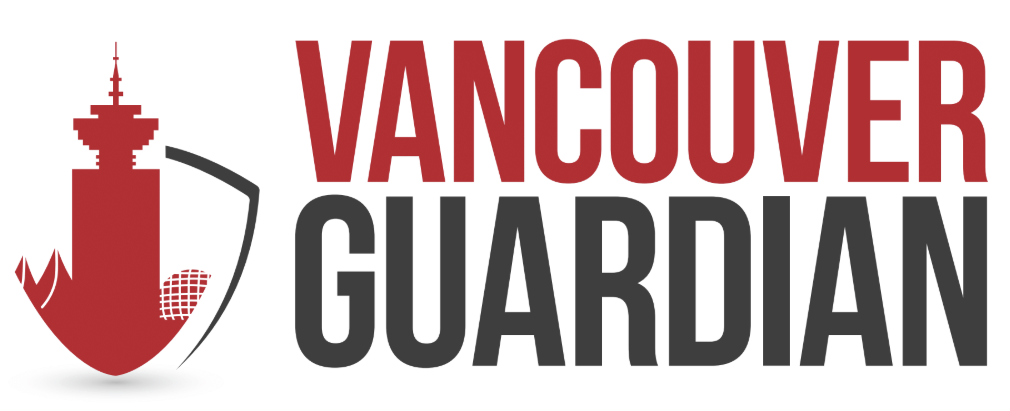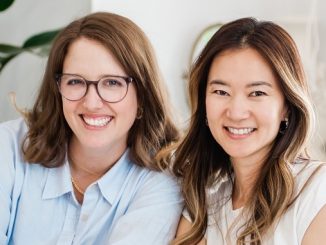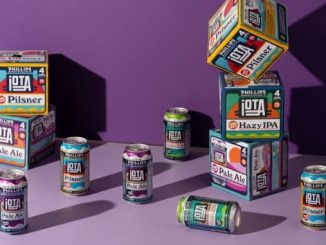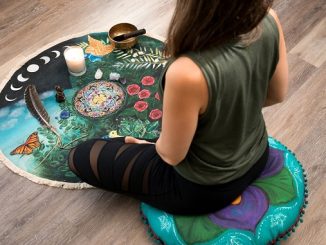Devil May Wear is a Vancouver-based company that offers women’s clothing, lingerie and accessories. Their items are made by hand and their focus is on showing that slow fashion can still be beautiful and fun while also being locally sourced, ethical and sustainable. Their accessories are unique and their lingerie can make any woman feel confident and strong. We spoke with Stephanie Ostler, owner, designer and founder of Devil May Wear to learn more about them.

What is your business called and what does it do?
Devil May Wear is a clothing company making all our clothing, lingerie and accessories in Vancouver. We aim to firstly be as ethical as possible, then local, then sustainable.
What made you want to do this work?
This is such a long story because I launched this company straight out of high school at 17. I was a big fan of Naomi Klein and Noam Chomsky and was a subversive teenager with a talent for textiles. I saw an opportunity to put my skills and passions to work to make the world a better place. I continue to endeavour to achieve this through textiles and am now getting my Masters in Design at Emily Carr University hoping to improve my messages, my medium and my goals.
What problem did you want to solve with the business?
I wanted to create a real and lasting value shift in customer consumer habits towards ethical, sustainable, local goods. I found the interest in this was escalating until online shopping hit an inflection point and have since noticed a significant backslide in a serious commitment to these areas. Although buzzwords like sustainable are more common than ever I am finding them to be used more so as tools of greenwashing and selling more products than ever.
Who are your clientele/demographics?
I have taught business and design courses and think it is critical to narrow your focus we have to the mid 30’s professional woman but the reality is that our customers are so dynamic and diverse. Many of them are boomers who often say they don’t like the look of clothing made for women “their age”. I love my trans customers who I have, on a few occasions been honoured with seeing them step into dresses in a store for the first time (what an absolute honour). We have young girls who remind me of my teenage self who are discovering the importance of ethical purchases. One of my favourite demographics is new moms who have recently been converted to the importance of caring about the future. They are a fascinating group. I get crafters from all walks of life who really appreciate local products (and how fantastic our prices are because who would know better what it costs to make things). Tourists who want to take something truly a local home with them. And don’t forget men! Though we are essentially targeted towards women I am always excited to invite men into our brand for an experience whether it’s for them or a gift for someone else.
How does your business make money? How does it work?
We use to have a number of brick-and-mortar retail stores but due to Covid changing the landscape of retail we closed our last location which was on Granville Island. We are now available online and are reviewing potential store partnerships so that we can still provide that in-person experience to a degree. If there are any stores looking for a unique relationship with a supplier I am eager to chat.
Where in Vancouver can we find your profession?
Currently, check us out at our website or on Instagram.
What is the best question a prospective customer could ask a member of your profession when comparing services? Give the answer as well.
Who made the item, what it is made from, how long does it last, how does one care for it, and how does the supplier commit to caring after the purchase? We continue to offer repair services to whatever degree we can on all our clothing as long as it is something that can be repaired. Until people start doing this to their own clothing again this is a vital service and should be provided more.
What is the best part about what you do? What is the worst part?
The best part is the community and creativity aspect. I am so excited whenever I do something meaningful. I have had so many customers over the years cry when I alter an item to fit perfectly, take in clothing when they have lost significant weight, or repair something valuable, meaningful or just to save some money. I love when I see someone light up or learn something! The worst part is that these experiences become fewer and fewer as I have found people become tantalized by immediate satisfaction buying stuff they don’t need or want online impulsively. I believe in investing in what we purchase and, although I would prefer it be ethical, even if it is not I believe one should take as much time as they need to find the perfect item, spend as much as it takes (within reason for their personal situation) buy it once and then make it last as long as possible. Although it is great to know your garment was made with positive intentions even if you just buy your ultimate desire and care for it for as long as possible you are doing the world a service.
What is your favourite joke about your own profession?
That my prices are high… lol. Or that handmade work should be cheap. I think it’s funny when we had a big store on Main Street with industrial machines in the back and occasionally people would come in and ask if “that is a recording of machines” because they couldn’t imagine someone would actually be sewing their clothing. That underwear is easy to make. Lol. Also that sizes should be standardized across brands. It’s great on paper but if people think they are left out of finding clothing that fits just imagine standardized sizing!! If you didn’t perfectly fit the fit model (or one version of their ratios) you wouldn’t fit the clothing. Of course, we don’t think like this, we think a size 10 should be x inches across the bust but it is entirely unrealistic when we are looking at such a variety of body ratios and measurements across our entire surface. Which measurement is standard? What about all the other measurements? Would they all be the same ratio as the standard? They would have to be for standardized sizing. It is about the least inclusive sizing alternative I can imagine. Sorry people… sizing is going to be tough. Get to know the brands you like and buy. That’s the best way to find what fits.
What are your social media channels?
Website | Facebook | Instagram | Twitter
PAY IT FORWARD: What is another Vancouver business that you love?
Dream designs of course! As one of the original local clothing designer boutiques in Vancouver Wendy deserves all the attention she can get.



